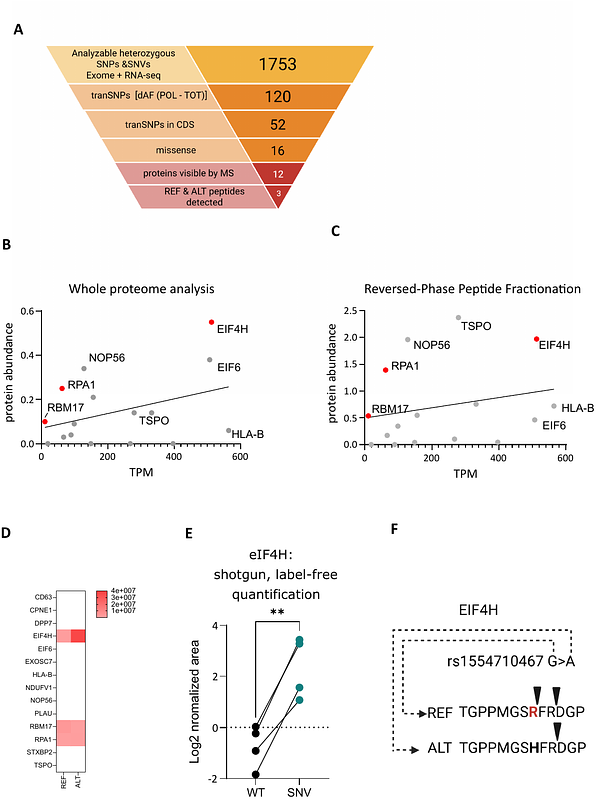Polysomal profiling coupled to allele-specific proteomics reveals an EIF4H tranSNP allele possessing higher mRNA translation potential.

Polysomal profiling coupled to allele-specific proteomics reveals an EIF4H tranSNP allele possessing higher mRNA translation potential.
Hamadou, M. H.; Alunno, L.; Peroni, D.; Pancher, M.; Venturelli, T.; Belli, R.; Dassi, E.; Romanel, A.; Inga, A.
AbstractTo search for genetic sources of allele-specific mRNA translation, we leveraged heterozygous polymorphisms and variants present in the exome of HCT116-derived cell lines, computing allelic fractions in total and polysome-associated RNA from RNA-seq data. Allelic imbalance in polysomal RNA led us to nominate 52 coding variants associated with allele-specific mRNA translation, of which 16 are nonsynonymous. To validate instances of allele-specific translation, a proof-of-concept proteomics approach was developed to quantify the relative expression of pairs of endogenous proteins resulting from the decoding of alleles containing the nonsynonymous heterozygous variants. In particular, the G>A, R183H missense SNV rs1554710467 in the EIF4H gene was investigated. The alternative peptide containing H183 was significantly more abundant than the corresponding one containing R183, consistent with the overrepresentation of the alternative allele in polysomal RNA in HCT116 cells. A dual-fluorescence ribosome-stalling assay confirmed the enhanced translation potential of the variant allele. The two EIF4H allelic proteins exhibited similar stability and subcellular localization. These findings support the classification of rs1554710467 as a gain-of-function allele. This study demonstrates the feasibility of using allele-specific proteomics at the endogenous protein levels, exploiting heterozygous coding variants. Overall, our approach extends the toolbox available to investigate allele-specific differences in mRNA translation potential, a relatively underexplored layer of gene expression control that could underlie inter-individual differences in disease-relevant phenotypes.